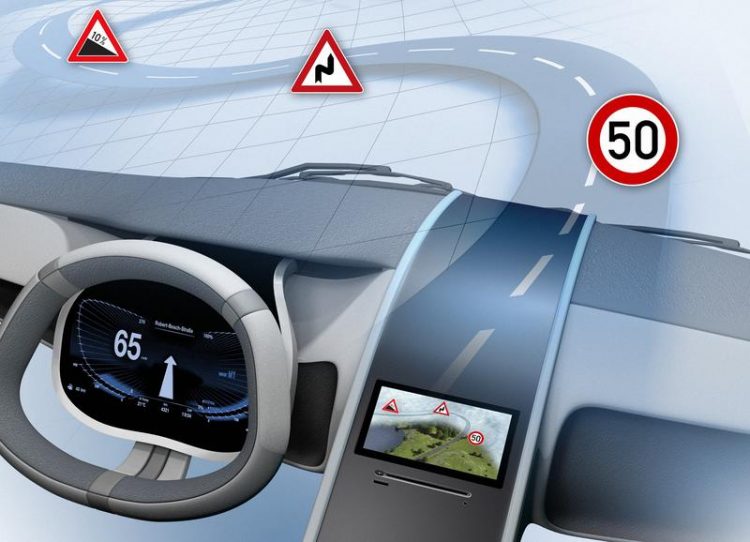Use your Voice: The Cooperative Alternative

KoFFI: a joint project of research and industry partners. Image: Robert Bosch GmbH
Autonomous driving is currently considered the cornerstone of the transportation of tomorrow. Driving without a driver, however, poses major technical, legal, and ethical challenges for automobile manufacturers.
The joint project “Cooperative Driver-Vehicle Interaction” (KoFFI) presents an alternative approach: It deals with semi-automated driving – that is, with situations in which it is still generally possible for the driver to intervene. “In this project, we also consider the important ethical, legal, and social issues,” Project Coordinator Dr. Rainer Erbach (Robert Bosch GmbH) explains. “These issues are then taken into account in the design and development of the prototypes.”
The project partners come from the fields of industry and university research. In addition to Robert Bosch GmbH (Car Multimedia), Daimler AG (Research and Advanced Engineering), and EML European Media Laboratory GmbH, other involved parties include the University of Ulm, Heilbronn University, and the Institute of Digital Ethics at Stuttgart Media University.
The “KoFFI” project runs for a period of three years (until June 2019) and was funded by the Federal Ministry of Education and Research (BMBF). It combines speech recognition, natural language processing, and a speech dialog system with graphic interfaces designed to meet the special requirements of semi-automated driving.
The EML provides the required speech recognition methods that are used in the project for the local- and server-based conversion of speech to text. “We develop language components for the KoFFI speech dialog system and adapt it to fit the required context,” EML Manager Research Dr. Volker Fischer explains.
Just like all other components of the KoFFI system, the language technology components are also evaluated and optimized via user studies because one of the project’s goals is to increase people’s trust in the technology they need to rely on in case of an emergency.
EML European Media Laboratory GmbH will present their speech technology from February 27- March 1, 2018, at the CCW in Berlin, the international conference and trade show for customer communications services. The EML stand is located in Hall 2, C19.
Find more best practice examples for the use of EML speech technology in the brochure “Use your Voice!”
http://www.eml.org/downloads/PDF/EML_Best_Practice-2018-02-07_EN.pdf
For additional information please contact:
Dr Peter Saueressig
Head of Communications
EML European Media Laboratory GmbH
Berliner Str. 45
69120 Heidelberg
Tel.: +49 (6221) 533245
Email: saueressig@eml.org
EML European Media Laboratory GmbH
EML European Media Laboratory GmbH was set up as a private IT company by SAP co-founder Klaus Tschira (1940-2015). EML develops software and technologies for automatic speech processing, focusing on the automatic conversion of speech into text (transcription) as used in telephony (speech analytics, voice mail) and mobile applications (voice texting, voice search. www.eml.org
Follow EML on:
Twitter: @EMLvoice
Facebook: /EMLEuropeanMediaLaboratory
Youtube: /EMLVoiceMessaging
http://www.eml.org/english/media/presse.php?we_objectID=217 EML press release
Media Contact
All latest news from the category: Trade Fair News
Newest articles

Innovative 3D printed scaffolds offer new hope for bone healing
Researchers at the Institute for Bioengineering of Catalonia have developed novel 3D printed PLA-CaP scaffolds that promote blood vessel formation, ensuring better healing and regeneration of bone tissue. Bone is…

The surprising role of gut infection in Alzheimer’s disease
ASU- and Banner Alzheimer’s Institute-led study implicates link between a common virus and the disease, which travels from the gut to the brain and may be a target for antiviral…

Molecular gardening: New enzymes discovered for protein modification pruning
How deubiquitinases USP53 and USP54 cleave long polyubiquitin chains and how the former is linked to liver disease in children. Deubiquitinases (DUBs) are enzymes used by cells to trim protein…



